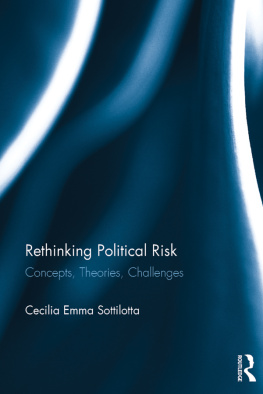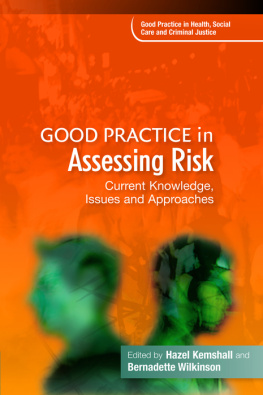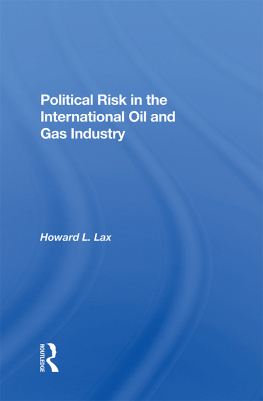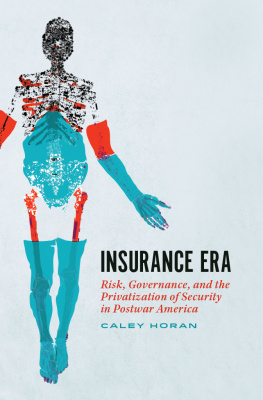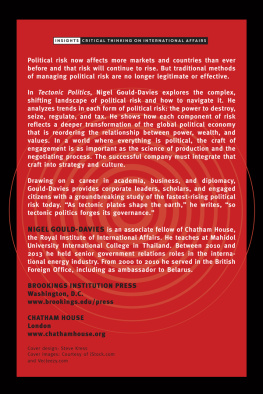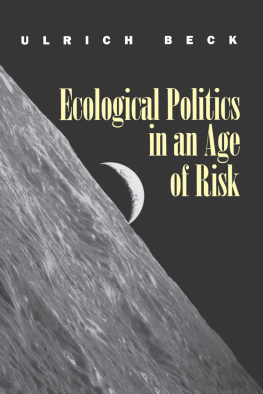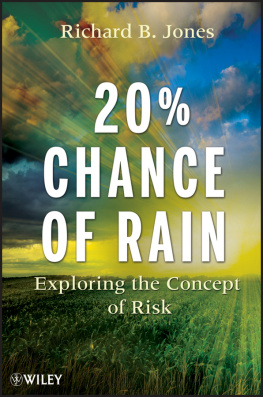Rethinking Political Risk
Political risk was first introduced as a component for assessing risk not directly linked to economic factors following the flow of capital from the US to Europe after the Second World War. However, the concept has rapidly gained relevance since, with both public and private institutions developing complex methodologies designed to evaluate political risk factors and keep pace with the internationalization of trade and investment. Continued global and regional economic and political instability means a plethora of different actors today conduct a diverse range of political risk analyses and assessments. Starting from the epistemological foundations of political risk, this books bridges the gap between theory and practice, exploring operationalization and measurement issues with the support of an empirical case study on the Arab uprisings, discussing the role of expert judgment in political forecasting, and highlighting the main challenges and opportunities political risk analysts face in the wake of the digital revolution.
Cecilia Emma Sottilotta is currently a post-doctoral research fellow in political science at LUISS Guido Carli, Rome, and an adjunct faculty member at the American University of Rome and at the University of Calabria, Italy.
First published 2017
by Routledge
2 Park Square, Milton Park, Abingdon, Oxon OX14 4RN
and by Routledge
711 Third Avenue, New York, NY 10017
Routledge is an imprint of the Taylor & Francis Group, an informa business
2017 Cecilia Emma Sottilotta
The right of Cecilia Emma Sottilotta to be identified as author of this work has been asserted by her in accordance with sections 77 and 78 of the Copyright, Designs and Patents Act 1988.
All rights reserved. No part of this book may be reprinted or reproduced or utilized in any form or by any electronic, mechanical, or other means, now known or hereafter invented, including photocopying and recording, or in any information storage or retrieval system, without permission in writing from the publishers.
Trademark notice: Product or corporate names may be trademarks or registered trademarks, and are used only for identification and explanation without intent to infringe.
British Library Cataloguing in Publication Data
A catalogue record for this book is available from the British Library
Library of Congress Cataloging in Publication Data
A catalog record for this title has been requested
ISBN: 978-1-4724-7751-4 (hbk)
ISBN: 978-1-315-60615-6 (ebk)
Typeset in Times New Roman
by Apex CoVantage, LLC
To my grandfather Angelo Sottilotta
Contents
Political risk analysis and assessment (PRA) can be described as a practice-driven, forward-looking set of activities performed every day by a plethora of corporate and governmental actors to provide investors with insights into questions that escape the realm of conventional business risks, as they pertain instead to the magmatic and sometimes indecipherable world of sociopolitical events.
From the point of view of a political scientist, PRA is an elusive, yet extremely fascinating, subject of study. Perhaps the most interesting aspect of this multi-faceted field of inquiry is the fact that any scholar venturing into it is confronted with virtually all of the big questions that have haunted political thinkers since the dawn of time, from the determinants and dynamics of social change to the relationship between the government and the individual, from the shifting nature of statehood to the possible (dis)equilibria underpinning the functioning of different types of political regimes this, however, with a specific point of view in mind, that of international businesses engaging in foreign direct investment (FDI). In the information age more than ever before, the availability of reliable sources of intelligence but also of intellectual tools to discriminate among them is key to any business venture: businesses worldwide are becoming (often at their own expense) increasingly more aware of the costs implied by the dismissal of political considerations when making medium- and long-term investment decisions.
This book is the fruit of long reflection on how to make political knowledge genuinely relevant and intelligible for corporate actors whose jargon, conceptual categories and perspectives are profoundly different from those of scholars of politics. In this sense, one of the key themes of the book is precisely this inextricable connection between theory and practice, as the inaccurate conceptualization and translation of political hazards into actionable risk thresholds can result in serious damage in the worst case scenario, even in the loss of human lives, as was the case in the 2013 In Amenas terrorist attack discussed in .
In spite of the many claims by scholars and practitioners alike about its theoretical underdevelopment, research into political risk as such has languished in the last few years. Thus, this book also aims to reorganize the research agenda on political risk as an autonomous field of inquiry by enlarging its scope to incorporate a number of other issues which are sometimes overlooked in the context of PRA, such as its epistemological affinities with futures studies, the dominant yet controversial role of expert judgment, and the political impact of the digital revolution. An important, preliminary disclaimer to be made is that this study deals with the analysis (that is, singling out the causes) and the assessment (which is about the modeling and measurement) of political risk, while the management of political risk (that is, the strategies for risk mitigation that can be implemented by the international investor) falls beyond the scope of this book. Closely linked as they are, these three phases are to be kept separate, as they constitute different steps of a process: there cannot be political risk management without political risk assessment, and equally there cannot be a risk assessment without prior analysis.
The book is ideally aimed at a threefold audience: (1) practitioners, including but not limited to those with an academic background and/or those working in the field of business intelligence and political risk analysis; (2) students taking and lecturers teaching postgraduate courses on country and political risk analysis or on international political economy with a special focus on multinational enterprises; and (3) scholars and lecturers of either political science or business studies wishing to deepen their understanding of the theoretical and practical challenges posed by the analysis and assessment of political risk for FDI.
Rome, April 2016
This book would never have been written without the help and support of many people.
First of all, I owe my deepest gratitude to Professor Leonardo Morlino, who patiently introduced me to the world of comparative research and encouraged me to research political risk when I started my Ph.D. at LUISS Guido Carli, Rome.
Special thanks go to Giulia Tufo, for her patience and understanding in the last year of hard work. I am also extremely grateful to Chiara Labate, Marika Gangemi, Antonino Ciancia, Lucia Mamm, Federica M. Canale, Mario Meliad, Giuseppe Loddo and Paolo Catalano. Warm thanks also go to Jelena Pavicevic, Enma Andrs Sierra, Mely Corts Verdn and Paolo Swuec for their support during my research stays in Belgrade, Berlin and London, and to Lucia De Cicco, Lucia Mencaroni and Alessandro Toppi for the indispensable laughter we shared in the last couple of years.

